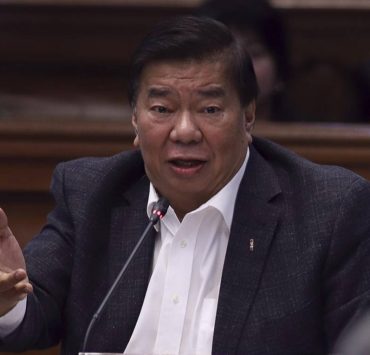Healthy futures: A case for progress
With health front and center for the first time in the United Nations Framework Convention on Climate Change (UNFCCC) climate negotiations in Dubai, one should be optimistic that with health-promoting climate change actions—as the latest Lancet 2023 report on climate and health espouses—the promise of a safe and thriving future for all can become a reality.
This is a huge emerging opportunity that the Conference of the Parties of the UNFCCC (COP28) represents; but whether it will deliver, whether it can pave the way for a truly transformative agenda that the health sector can champion if not lead, that remains to be seen.
Nevertheless, it is important to appreciate the centrality of health in the negotiations. With the recognition that health is the be-all and end-all of climate discussions because all dire climate change scenarios and projections will ultimately redound and impact on the health and well-being of ecosystems and humans, it is also instructive to see the unique role of health as a prevention-oriented sector.
Health always aims to address the root causes of diseases. In the case of unabated anthropogenic carbon emissions and mounting evidence of the health sector’s own contribution to it, it must not only treat the symptoms of a changing climate—extreme weather events, infectious diseases, cardiovascular and respiratory diseases, food and water security issues, mental health concerns—that increase the death toll and global burden of disease among humans.
It should also prescribe prevention, chief of which is transitioning from fossil fuels, and lining up interventions that can produce co-benefits for health especially those operating in energy and food systems.
This regimen of adaptation and mitigation should bode well for the performance of the health sector if it is to maintain its high level of trust and confidence among people who should be touted as patients in an ailing planetary health system.
In keeping with the Hippocratic Oath that all healers go by, this creates the imperative for the health sector to perform dual roles.
First is to build climate-resilient health systems to prevent, prepare for, respond to, and recover from climate change impacts that may shock and strain the health system.
Second is to develop low-carbon health systems in terms of their health infrastructure, technologies, and supply chains to prevent further complications.
How these treatment and prevention outcomes would be pursued and achieved (at least in terms of agreements) in the COP28 will depend on how well the health transformation agenda will be articulated.
With the health sector at the negotiating table, the following areas can be put forward using the narrative of healing:
On mitigation, we should roll up our sleeves to protect global health and promote equity while giving advice on health co-benefits.
For adaptation, we have to muscle up to be able to handle the intensely crippling and slowly consuming stresses brought about by extreme heat to our health system.
On loss and damage, we have to see the face of humanity when we study health impacts. Listening to lived experiences, we can remember the souls of those who perished and those who are still suffering because of this grave existential threat. These should inspire us to lobby for funds to support them and future others.
In terms of economics and finance, let us give our second opinion on the need to increase climate finance, an important lifeblood to support developing countries, and on how best to channel funds to the health sector as we revitalize our health systems.
For food and agriculture, let us nurture food systems to support the nourishment of health and well-being by ensuring food security, optimal nutrition, and climate-resilient agriculture.
Finally, as we read the planet’s charts, see our progress (or lack thereof), and prognosticate on the health of human civilizations in this next phase of the Anthropocene, let us also work with fellow experts and healers from other fields to assemble a multispecialty team capable of vigorously promoting a health perspective in climate actions.
With full doses of commitment, leadership, and integrity, and channeling the health sector’s reputable capacity to use scientific evidence to assess, diagnose, and offer definitive solutions to treat maladies, we must stand together in code red fashion and do everything that we can to address climate change—the most pressing health issue of our time—and do our job before it is too late.
Ronald Law is a public health practitioner, academic, and scholar focused on the intersections of disaster risk reduction and management and climate change adaptation with health. He is a contributing author to the health chapter of the IPCC Sixth Assessment Report, a Rockefeller fellow on climate change, and a member of the Philippine negotiating team at the COP28.

















